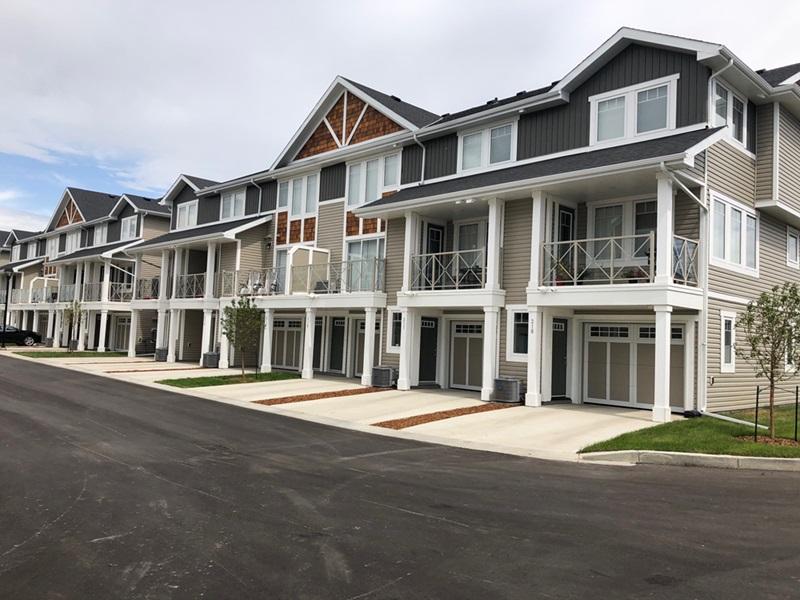
Fiera Real Estate director of investor relations Kim Nguyen. (Courtesy Fiera)
Communicating with investors has always been vital, but the pandemic both created a greater demand and forced most firms to quickly change their interactions with clients and partners. Panelists during a June 17 webinar hosted by Juniper Square agreed those who successfully navigated the upheaval have reaped the benefits.
Juniper Square strategic account director James Harkness moderated the online panel comprised of Fiera Real Estate director of investor relations Kim Nguyen, NYX Capital Corp. chief financial officer Eileen Foroglou and Slate Asset Management managing director Katie Fasken.
The panelists discussed their strategies during the pandemic and how changes made during this time may affect future communications policies and practices.
“I think the reason people are in private real estate is that there is less volatility and, during the global financial crisis we did see the ability to weather through some of these storms,” said Harkness.
The third part of the webinar looked at: environmental, social and corporate governance (ESG); diversity, equity and inclusion (DEI) in the real estate industry; and how companies can give back to the communities in which they’re involved.
Fiera Real Estate
Fiera is an investment management company that provides direct real estate investment opportunities to institutional investors, foundation and endowment clients, and high-net-worth investors. It has Canadian offices in Toronto, Montreal and Halifax, and London in the United Kingdom. It has 336 properties valued at $6.4 billion under management globally.
Nguyen said investors had questions about Fiera’s operations, rent collections and how it planned to weather the storm when the pandemic first hit, and the company spent more time on breaking things down further in its explanations than it had in the past. Those queries started tapering off later in 2020, according to Nguyen.
“We have been very consistent and transparent in communicating and providing that sense of calm,” said Nguyen. “We can’t tell the future but we do know that, as a platform, we have these measures in place for events like this.”
Innovation has started to play a bigger role in how real estate companies operate. Nguyen said some administrative activities can now be taken care of through technology, freeing up resources for companies to dedicate more time to building relationships with investors at the human level.
Virtual meetings also enable regular communication with investors around the world, which Nguyen said was less common pre-COVID-19.
The majority of Fiera’s institutional investors already have ESG mandates and they’re seeking companies which can accommodate them.
“It’s always been a going concern, but what I’ve noticed in the last few quarters is a lot more conversations asking us about specific metrics that they will use to rate us as a manager on how serious we are taking this ESG journey,” said Nguyen.
As younger people become more involved with investment decisions, Nguyen believes ESG awareness will become more embedded: “It’s not just nice to add anymore, but kind of a requirement.”
Nguyen said Fiera is passionate about education and hosts case competitions at schools to give students a taste of what’s happening in the real estate industry by using examples from the firm.
Students compete to come up with creative solutions to problems and receive feedback, mentorship and support.
NYX Capital Corp.
Toronto-based NYX is a 16-person private equity firm with two million square feet of residential, commercial, self-storage and fitness space valued at about $700 million under management or development in the Greater Toronto and Hamilton Area.
Foroglou said investors wanted constant communication about things such as government-mandated lockdowns, rent collections, investment performance and work-from-home practices when the pandemic began because there was so much uncertainty. NYX was able to meet those demands.
“I’ve always been a big believer that to have successful investor communication is to always be consistent, transparent and honest,” said Foroglou.
Foroglou said ESG has been around for more than a decade and has become an increasingly large priority.
She noted portfolio managers and investors who have focused on ESG during the pandemic have reaped the benefits. High-net-worth investors who’ve seen large institutional investors pay more attention to ESG will follow that lead.
Foroglou said about two-thirds of NYX’s employees are from diverse backgrounds and the median age is in the early 30s. Because of the company’s relatively small size, it gets team members involved in some strategic leadership decision-making.
“It allows us to ensure that our team feels like they’re part of our business as we grow,” said Foroglou.
NYX tries to “select transit-oriented sites where we can bring some density through our planning while being mindful with the community and really reducing our carbon footprint overall in the city,” said Foroglou.
The company wants to add more affordable housing to its portfolio and is looking for technology and partnerships that can help it make a bigger community impact.
Slate Asset Management
Slate is a global real estate owner and operator headquartered in Toronto, with additional offices in Chicago, London and Frankfurt. It has $10 billion worth of assets under management.

Katie Fasken is the managing director of investor relations at Slate Asset Management. (Courtesy Slate)
“LPs (limited partners) were presented with so much uncertainty in their portfolios over the last 16 months,” said Fasken. “And our goal at Slate is to provide solutions, not to add to that uncertainty, but the truth is in those early days no one had the solution because we didn’t know the longevity and the severity of COVID.”
Slate sent out bi-weekly communications to all of its limited partners, summarizing what its investment and asset management teams were doing to manage portfolios. The communications included information about bespoke tenant strategies, rent collections, development updates and impacts, as well as market updates and the status of government support programs. Those communications eventually moved from bi-weekly to monthly.
Fasken said none of Slate’s investment strategies had to change course due to COVID-19. The firm has raised more than $1 billion in equity and acquired more than $3 billion worth of commercial real estate since the pandemic began.
“In a pre-COVID world, we travelled to almost every meeting in person,” said Fasken. “And this Zoom world has certainly allowed us to have more frequent informal touch points, which has worked really well for building relationships with LPs.”
Going forward, Fasken believes a hybrid model of travelling for in-person meetings and continued virtual meetings will become the norm.
“Our policy on DEI has never really been driven by investor demand,” said Fasken. “It’s really been driven by our desire to attract and retain the best talent we can.”
Fasken said about 45 per cent of Slate’s professional team is female and 25 per cent is black, Indigenous or people of colour, but there are still improvements to be made at the senior leadership level.
“To foster inclusion amongst our entire team, something unique that Slate offers is every employee is allowed to invest,” said Fasken. “Anyone from our receptionists to our partners are encouraged, but not mandated.”
Slate also offers “an exceptional maternity leave policy, unlimited vacations, bespoke family-first benefit packages and unlimited access to mental health services,” among other perks, Fasken added. Employees are also invited to share their thoughts, concerns and ideas about company policies with Slate’s leadership.
It also has a building rooftop where it keeps beehives to make honey, which it distributes, and provides free morning yoga classes to tenants.
“We also hire local artists from the community who have created numerous public art murals,” said Fasken. “We also hire them to create the hoarding for our development projects.”









